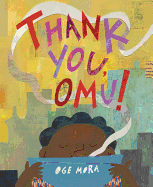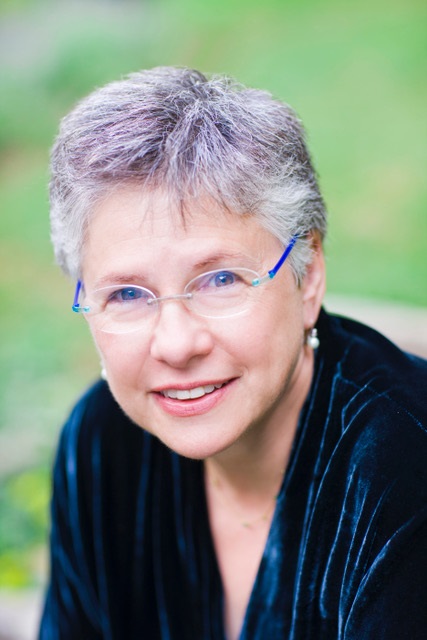 |
| photo: Corbin Gurkin |
Katharine Weber is the author of seven books, including Triangle
, Objects in Mirror Are Closer Than They Appear
, The Music Lesson
and The Little Women
. She's in her seventh year as the Richard L. Thomas Professor of Creative Writing at Kenyon College. Weber's first fiction in print, a story that was part of her first novel in progress, appeared in the New Yorker
in 1993. She admits now that after "Friend of the Family" was rejected, she sent it back unchanged, convinced that it would succeed there; this time Daniel Menaker found it in the slush pile. Her new novel is Still Life with Monkey
(Paul Dry Books, August 21, 2018).
On your nightstand now:
Asymmetry by Lisa Halliday. I was drawn to this impressive if uneven first novel because it is in part a fictionalized account of the author's romance with Philip Roth, one of my literary heroes.
Favorite book when you were a child:
The Twenty-One Balloons by William Pène Du Bois. I was captivated by this wildly inventive utopian story of hot air balloon travel, Krakatoa's 1883 eruption, mountains of diamonds and electric houses filled with futuristic inventions, all ruled generously by the Gourmet Government.
Your top five authors:
Philip Roth, Muriel Spark, Vladimir Nabokov, Edith Wharton, Flannery O'Connor
Book you've faked reading:
Infinite Jest by David Foster Wallace. I teach at Kenyon College, where DFW gave his cherished "This Is Water" commencement address, so it's practically holy scripture, but I have never been able to get more than halfway through this infinite text.
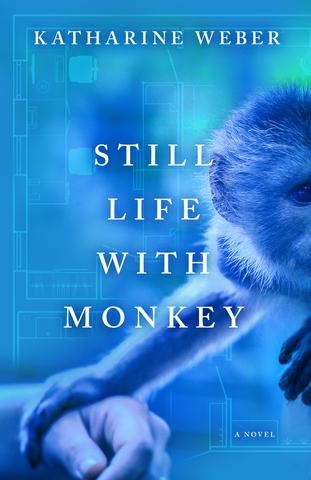 Book you're an evangelist for:
Book you're an evangelist for:
The Floating Opera by John Barth. Published in 1956, Barth's idiosyncratic first novel was revised and re-published 11 years later, when he was successful enough to demand the restoration of the nihilistic ending his publisher had insisted on changing.
Book you've bought for the cover:
Independent People by Halldor Laxness, for the enchanting cover painting by Louisa Matthiasdottir, a perfect pairing of Icelandic artist and writer.
Book you hid from your parents:
No books were off-limits, so I had nothing to hide. I read my parents' copy of Lady Chatterley's Lover when I was 12. Many things were hidden in that house, but not books.
Book that changed your life:
Edwin Mullhouse by Steven Millhauser, the fantastically inventive novel--a biography of a child by another child!--that gave me permission to write novels.
Favorite line from a book:
"She was so deeply imbedded in my consciousness that for the first year of school I seem to have believed that each of my teachers was my mother in disguise." --the first sentence of Portnoy's Complaint by Philip Roth
Five books you'll never part with:
Lucy Carmichael by Margaret Kennedy, So Little Time by J.P. Marquand, Cress Delahanty by Jessamyn West, Custom of the Country by Edith Wharton, The Complete Stories of Flannery O'Connor.
Book you most want to read again for the first time:
The Great Gatsby by F. Scott Fitzgerald. It's an utterly perfect novel (really a novella), a cocktail of inevitability and surprise and strangeness that goes down flawlessly each time I read it. Like most of us, I read it for the first time when I was far too young to appreciate what signifies and resonates for me now.
Book you regret having read:
Fragments by Binjamin Wilkomirski. This 1996 counterfeit Holocaust memoir was violent and disturbing and deeply moving--and then it became exponentially disturbing and disgusting, when the author was subsequently unmasked as a fraud. This book wasn't "fiction," it was appropriation and grotesquely false.
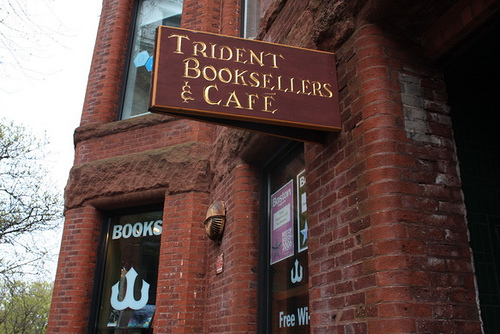 "Customers were so wonderful throughout. We've received so many wonderful e-mails and Facebook posts and all social media stuff, physical letters that people have dropped off, just giving good will, missing us. We've been open for 35 years so--and it's a unique place. We've touched a lot of people, and they have just been so wonderful and supportive... and just the flood of people coming in, missing us, I mean, it's just amazing. It's really the thing that you kind of do it for....
"Customers were so wonderful throughout. We've received so many wonderful e-mails and Facebook posts and all social media stuff, physical letters that people have dropped off, just giving good will, missing us. We've been open for 35 years so--and it's a unique place. We've touched a lot of people, and they have just been so wonderful and supportive... and just the flood of people coming in, missing us, I mean, it's just amazing. It's really the thing that you kind of do it for....





SHELFAWARENESS.0213.S4.DIFFICULTTOPICSWEBINAR.gif)




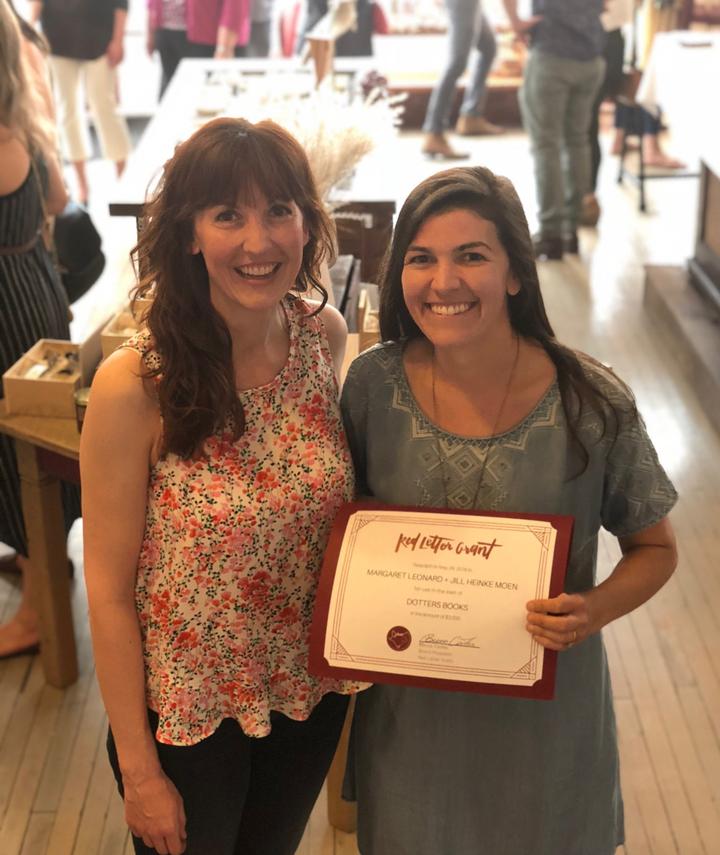

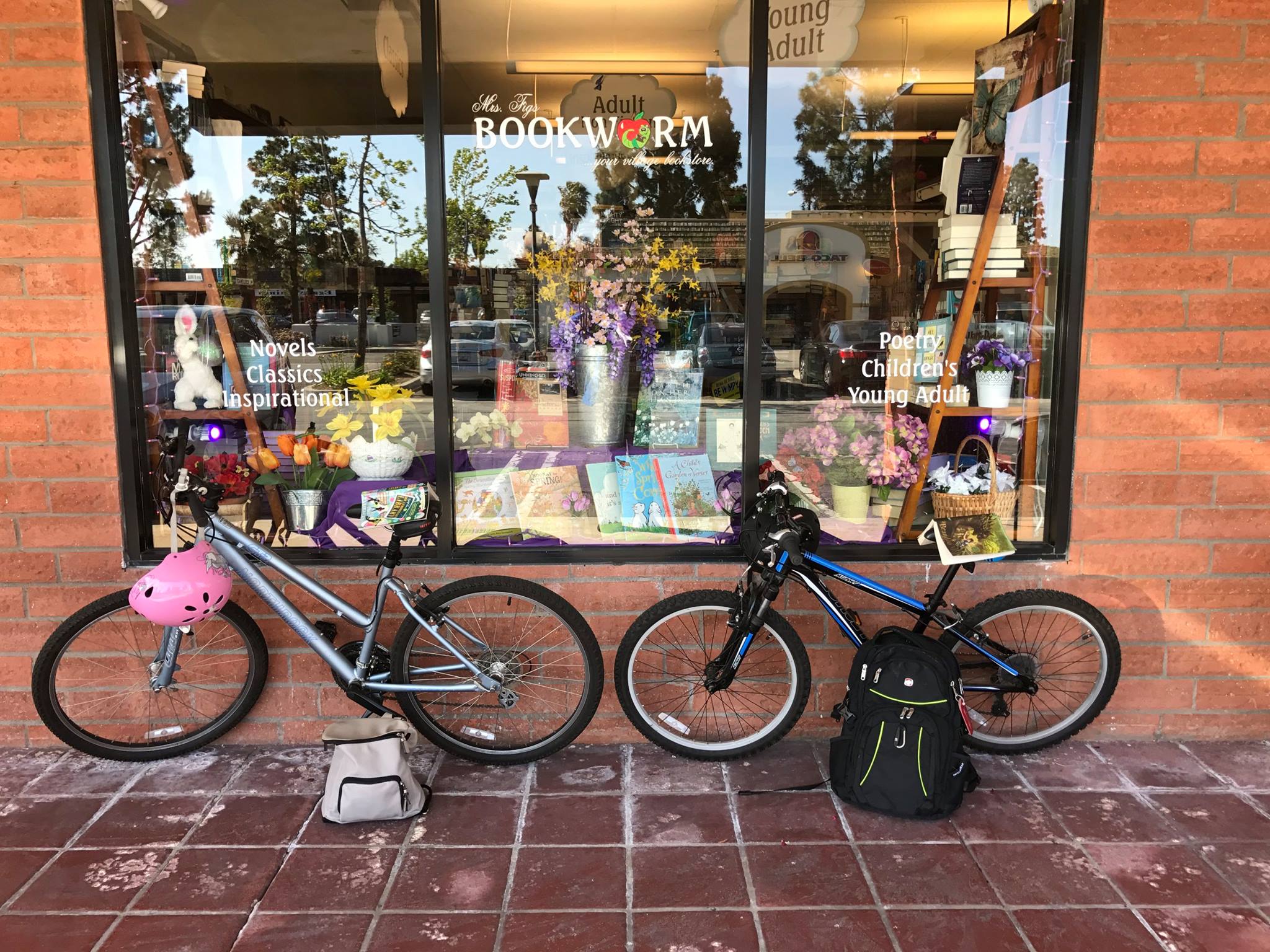 Mrs. Figs' Bookworm
Mrs. Figs' BookwormSHELFAWARENESS.0213.T3.DIFFICULTTOPICSWEBINAR.gif)
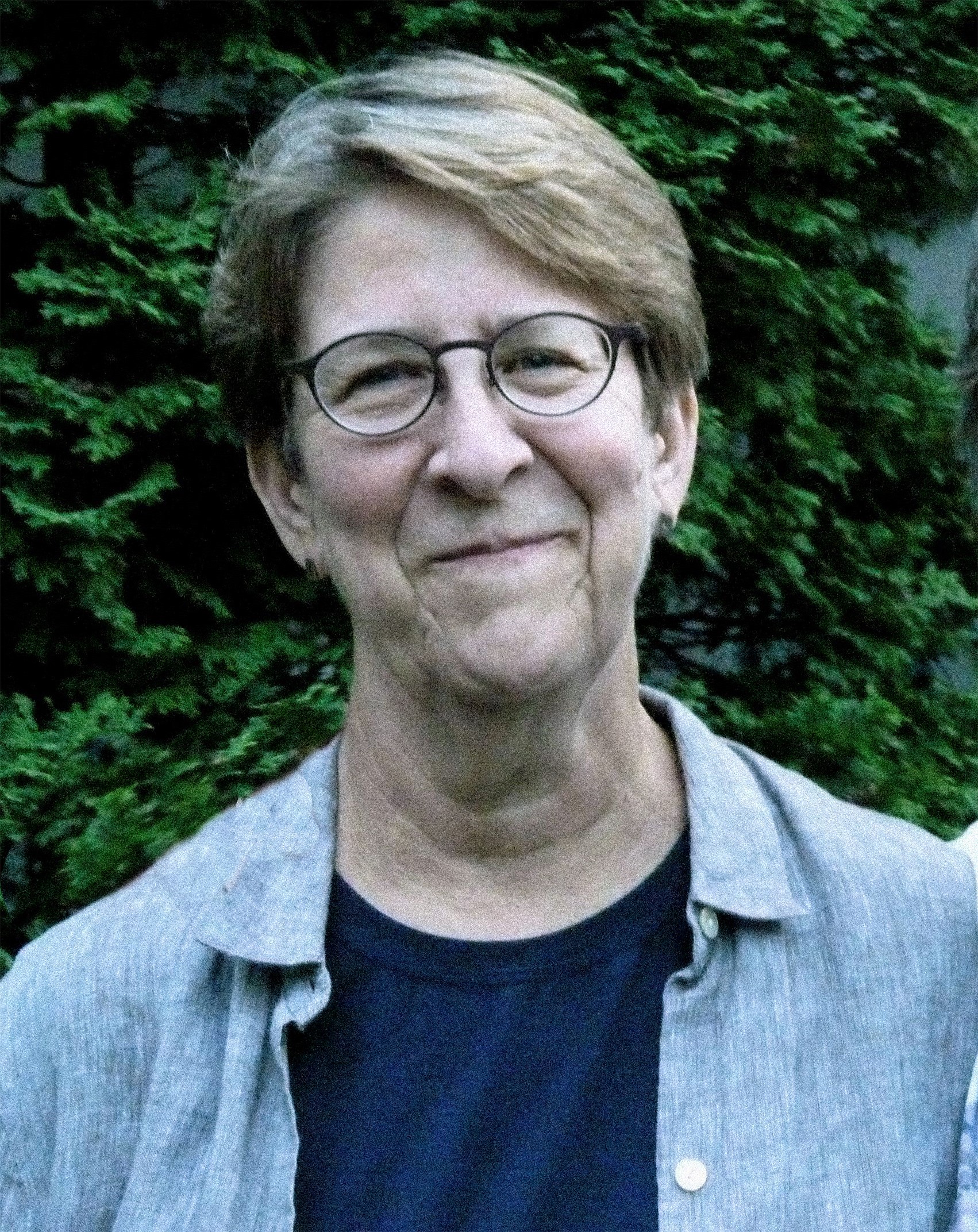
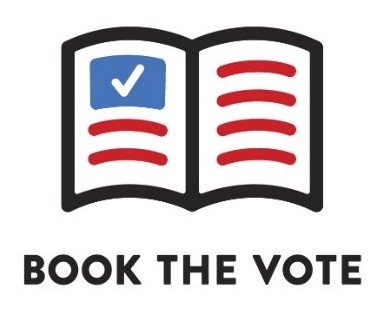 Later this month, Penguin Random House is launching Book the Vote, a company-wide effort that aims to encourage voter registration and voter turnout in connection with appearances by popular authors and by providing bookstores tools for displays, community nights and related initiatives.
Later this month, Penguin Random House is launching Book the Vote, a company-wide effort that aims to encourage voter registration and voter turnout in connection with appearances by popular authors and by providing bookstores tools for displays, community nights and related initiatives.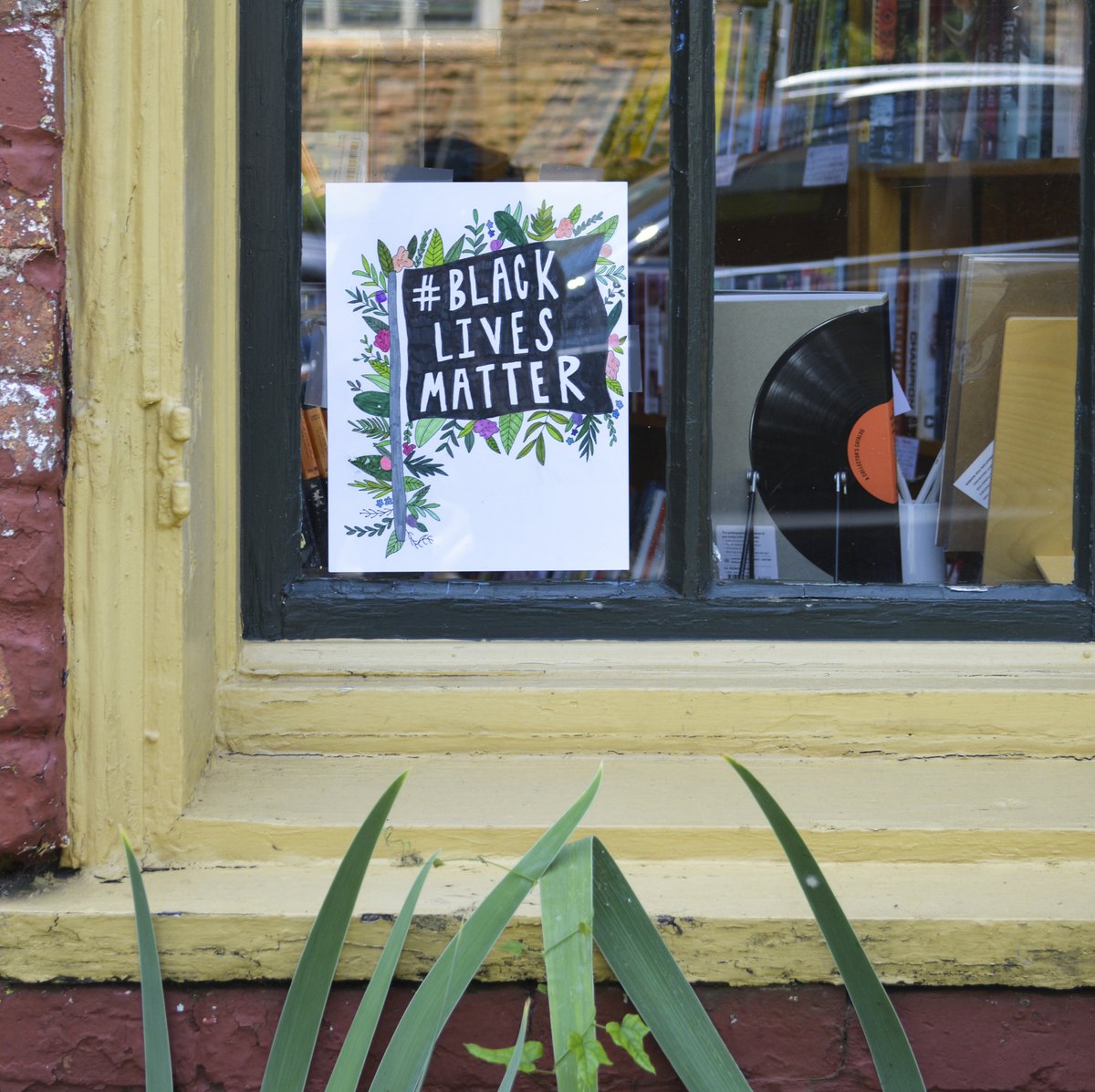 In response to a one-star Google review claiming it was a "bad business move" to put the staff's political opinions in the store's front window,
In response to a one-star Google review claiming it was a "bad business move" to put the staff's political opinions in the store's front window, 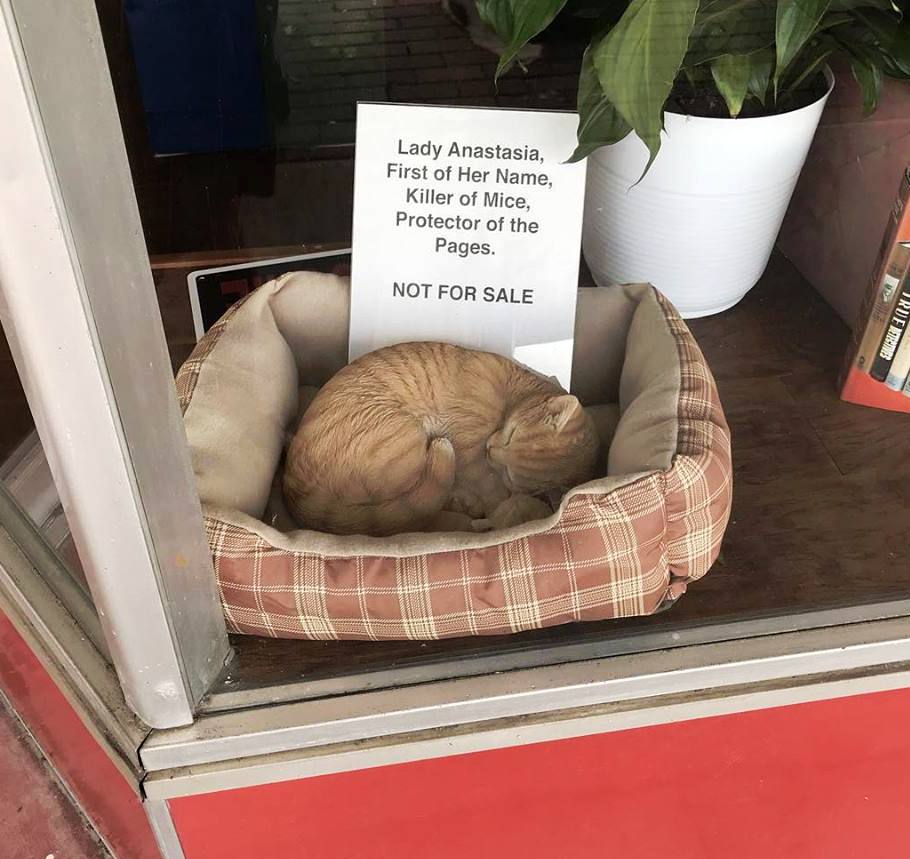 Muddy Water Bookstore
Muddy Water Bookstore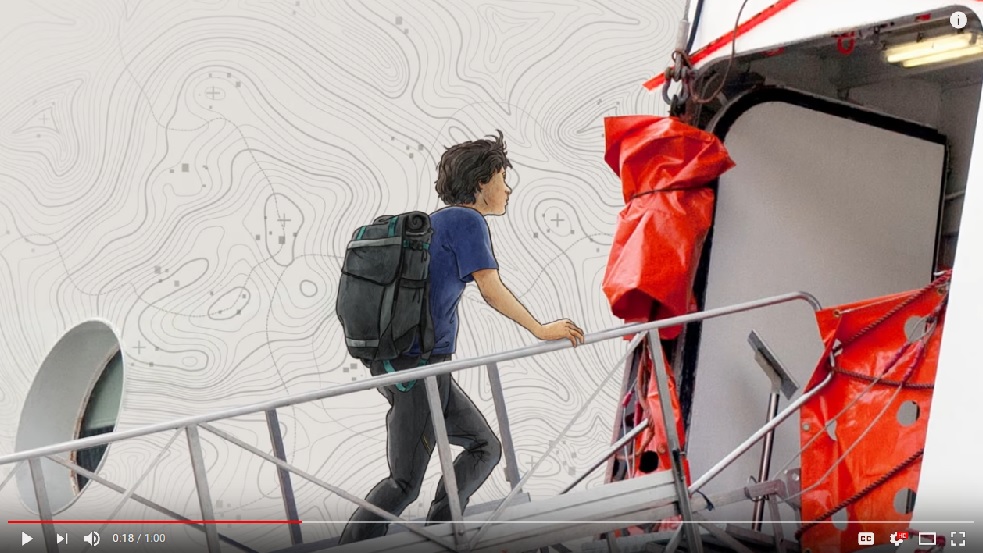 Explorer Academy: The Nebula Secret
Explorer Academy: The Nebula Secret
 Book you're an evangelist for:
Book you're an evangelist for: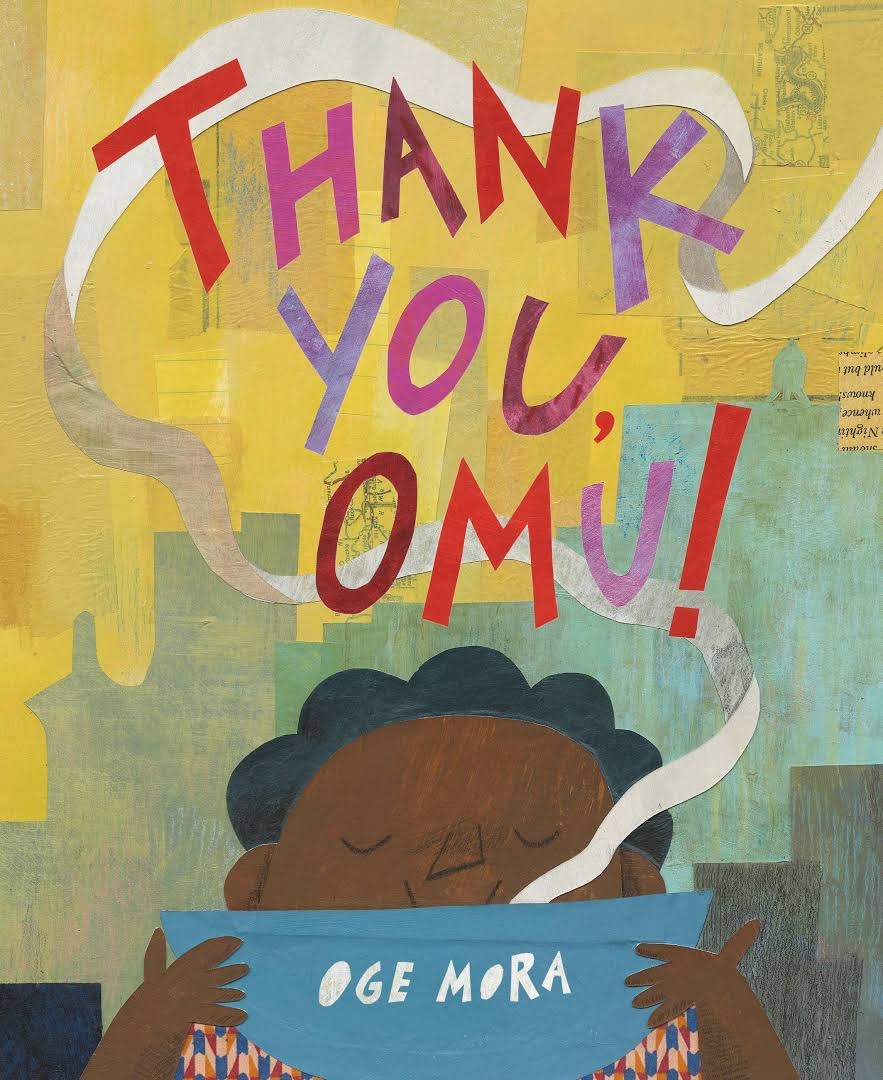 From an open window of a top-floor apartment on "the corner of First Street and Long Street" comes a most delicious smell. Omu (pronounced AH-moo) is preparing "a thick red stew in a big fat pot for a nice evening meal." Certain that "[t]onight's dinner will surely be the best [she's] ever had," Omu reads her book as her supper simmers. The irresistible scent, however, can't be contained: it "waft[s] out the window and out the door, down the hall, toward the street, and around the block."
From an open window of a top-floor apartment on "the corner of First Street and Long Street" comes a most delicious smell. Omu (pronounced AH-moo) is preparing "a thick red stew in a big fat pot for a nice evening meal." Certain that "[t]onight's dinner will surely be the best [she's] ever had," Omu reads her book as her supper simmers. The irresistible scent, however, can't be contained: it "waft[s] out the window and out the door, down the hall, toward the street, and around the block."